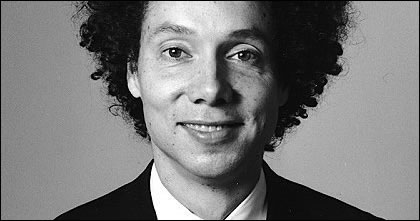Apps
To begin the day, Ms. Freidmann shared with us a secret weapon on how to study smart. Use Cold Turkey! This is an app that will, when activated, shut you out of all your social media sites for the amount of time you want. This enables you to work hard on studying without the constant distractions of Facebook, Instagram, Tumblr, etc. I know that you are eager to get this app so I posted the URL right below so you can start eliminating your distractions right away.

http://getcoldturkey.com/
Tests
Today we recieved two things, the silver nitrate lab and our tests. If you did not take the test, make sure to talk to Ms. Friedmann as soon as you can. Before we started to talk about the content of the test, Ms. Friedmann wanted to share with us her perspective of the tests. Going into the test, Ms. Friedmann anticipated that the test scores would be fairly high because we demonstrated that we knew the information pretty well in class. Also she made a practice quiz, video, and worksheets to ensure that we had ample amounts of study material. However, when she got the test scores back, they were not as high as anticipated. This is when she stopped and had to rethink what was still causing the grades to be low. She was able to come to a conclusion based off of the book David and Goliath by Malcolm Gladwell (which she highly recommends any of his work.) In his book, David outlines how the difficulty of parenting is affected by finances. It is reasonable that when you are poor, parenting is difficult due to the lack of food, shelter, etc. As more money is given to the parents, parenting becomes substantially easier. However, when the family starts having more than 75,000 dollars as an annual income, parenting becomes more challenging again. This is because children do not want to listen to their parents, work hard, or get good grades because they know they have enough money that they will never have to work. Ms. Friedmann feels that this is where she is. When we look at the video, we look at what we got wrong and move on. We never truly take enough time to understand the answer. Due to this, she will NOT be making a video this unit. She wants us to study smart! She wants us all to know that this in NO way is a punishment. This is simply an experiment to see how this new approach affects our grades on the Unit 6 test.

Malcolm Gladwell
Unit 6
The two power points are apart of the homework for tonight. They can be found in the Unit 6 handouts folder. You can copy these notes in your journal, BUT make sure to add on to them because we did not get through all of both power points. Here are the notes we took today:
I. The Atom
1. we will be studying the history of the atom and the current understanding of the atom
2. atoms are not visible
3. The Greek Philosophers
a. they were the first people to think that stuff is made out of stuff
b. they would talk about their understanding (not experiment)
c. came up with the conclusion that earth, air, fire, and H2O made up 'stuff'
d. Democritus and Leucippus
1. you divide things and get smaller things
2. everything is made up of smaller things of that same thing. For example, flame is made up of million of tiny flames all combined to make one big flame.
II. The Greek Model
1. Democritus
a. he came up with the idea that the smallest thing of matter was indivisible or "atomos" in Greek
b. he did not believe in subatomic particles- or that the atom can be divided. We now know that the atom can be divided, however it is made up of the same components (nothing new) so it remains the atom.
III. Alchemy
1. Started in the dark ages
2. People thought that they could take cheap metals and find a way to react the cheap metals together to make gold
a. they did not succeed yet figured out many new metals through their experiments
3. they found phosphorous because they believed that anything yellow could be boiled down to make gold, so they tried boiling down urine and discovered phosphorus!
IV. Robert Boyle
1. This is where we ended our notes, however, Ms. Friedmann did recommend a video posted in the unit six box to help further our understanding about Robert Boyle.
Democritus Lucippus
Boyle
Homework/ Reminders
Reminders:
1. Make sure to print out the calendar, the two objectives sheets, section 2.1-2.2 reading sheets, and the unit 6 review packet.
Homework:
1. Pick a few questions in the review packet to go over and try them. Just get the juices flowing about the topic. This packet will be due on Wednesday December 11.
2. Two webassigns are due tomorrow night at 11:59 pm.
3. In the unit 6 handouts folder, click on the power points 12.3 Atomic History Part One AND Part Two and take notes. Due Thursday because Ms. Friedmann will be absent tomorrow.
Thanks Katie! this really was helpful, me being gone and all, especially since you got it up before 11pm!!!
ReplyDeleteThanks Kevin! I realized that I neglected to post another scribe. I believe that everyone has done their Q2 post, so I am going to start again. The next scribe is... Juliette O.
ReplyDeleteGreat post, Katie! As Kevin, I missed today as well and you did a tremendous job explaining the things I missed! A huge thank you!
ReplyDeleteThank you Katie Coy! It's a very thorough blog! It's amazing, and very detailed! Again, thank you so much and keep up the great work!
ReplyDeleteHall of Fame post, Katie. Nice job!!
ReplyDelete